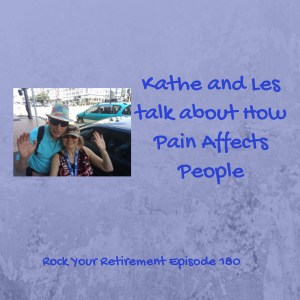- Culture
- SEE MORE
- classical
- general
- talk
- News
- Family
- Bürgerfunk
- pop
- Islam
- soul
- jazz
- Comedy
- humor
- wissenschaft
- opera
- baroque
- gesellschaft
- theater
- Local
- alternative
- electro
- rock
- rap
- lifestyle
- Music
- como
- RNE
- ballads
- greek
- Buddhism
- deportes
- christian
- Technology
- piano
- djs
- Dance
- dutch
- flamenco
- social
- hope
- christian rock
- academia
- afrique
- Business
- musique
- ελληνική-μουσική
- religion
- World radio
- Zarzuela
- travel
- World
- NFL
- media
- Art
- public
- Sports
- Gospel
- st.
- baptist
- Leisure
- Kids & Family
- musical
- club
- Health & Fitness
- True Crime
- Fiction
- children
- Society & Culture
- TV & Film
- gold
- kunst
- música
- gay
- Natural
- a
- francais
- bach
- economics
- kultur
- evangelical
- tech
- Opinion
- Government
- gaming
- College
- technik
- History
- Jesus
- Health
- movies
- radio
- services
- Church
- podcast
- Education
- international
- Transportation
- Other
- kids
- podcasts
- philadelphia
- Noticias
- love
- sport
- Salud
- film
- and
- 4chan
- Disco
- Stories
- fashion
- Arts
- interviews
- hardstyle
- entertainment
- humour
- medieval
- literature
- alma
- Cultura
- video
- TV
- Science
- en
How Pain Affects People Episode 180

b"Today's subject affects 20% of the US population because 1 of 5 adults experience pain. In our audience, it\\u2019s probably more than that because as you get older, it's more likely that you\\u2019re going to have pain. For the retirement years, this is also a good subject to talk about. My husband Les Briney is joining us for today's show as we discuss, how pain affects people.\\nAcute and Chronic Pain\\nAs a result of Les\\u2019 cancer. He has pain that is semi-chronic. By the way, there are 2 types of pain, there\\u2019s acute pain and chronic pain. Acute is usually very sharp pains and they don\\u2019t last that long. Chronic pain lasts for more than 6 months. This is according to the definition by Cleveland Clinic.\\nLes has stage 4 advanced metastatic prostate cancer. Meaning his cancer has spread to several places in his body. But he seems to be doing ok yet feeling some pain. He has acute pain from time to time. When he went for his chemo he has a lot of pain. Mainly the pain was a nerve type as opposed to joint type. The pains are sharp and shooting that occurs on different parts of his body.\\nPain Affects People Differently\\nAbout 50 million Americans report pain every day. 20 million of that 50 million can\\u2019t do their activities of daily living because of that pain. We also have friends who encounter that same problem.\\nPain is both a sensory and emotional experience that affects people differently. What's more, there is a difference between how you are confronted with pain and how you go on to tolerate it. Your body has different reactions to try to reduce the pain. That is why it affects people differently.\\nHow Physicians Treat Their Patients\\nA report prepared by Congress said that for every physician certified in pain care there are more than 28,500 Americans living in chronic pain. Also, doctors treat patients differently depending on what their gender is, ethnic background and all kinds of things. Women, for instance, don\\u2019t get necessarily the same reaction to pain when a doctor is a man. 70% of doctors are males. So, you already have some bias there.\\nAcute pain is treated normally through drugs and it\\u2019s a temporary thing. Chronic pain drugs cannot make the pain go away. Also, when you use opioids for chronic pain it becomes less effective over time.\\nWhen it comes to older people with pain, they are put off by doctors because they think that it\\u2019s expected as you grow older.\\nTreat Pain Through Combination of Things That You Do\\nEach person's pain should be treated by a combination of things that you do. It\\u2019s not something for chronic pain in particular. It is also not something that you can do once and that will be the end. This is something that you\\u2019re going to have to do for probably the rest of your life to try to get rid of the pain. The combination of all the things that the article talked about makes very good sense.\\nThe fact that it\\u2019s personal says your combination is going to be different from my combination. In Les\\u2019 case, probably the key thing is a combination of sleep and exercise. Because when Les does those things, generally, he feels better. With sleep, if you have pain, you can\\u2019t sleep. So, Les\\u2019 use Ibuprofen to keep the pain down as such a level for him to sleep. You have to think about other things than pain. That is why you have to move around and occasionally use pain killers.\\nIt is important that you understand the symptoms of pain and how to reduce pain. Dealing with pain whether acute or chronic is difficult but proper knowledge will help a lot in alleviating your problem.\\nMentioned in this Episode:\\nConsumerReports.org – Real Pain Relief, Now!"